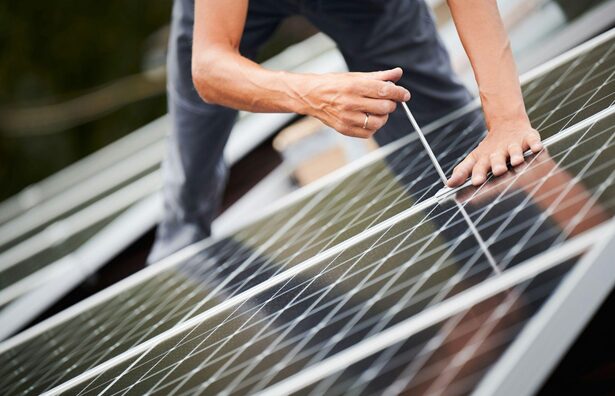Solar Roof vs. Traditional Solar Panels: Which is Right for You?

The solar industry has transformed dramatically over the past decade. What began as a niche technology for eco-conscious homeowners is now a mainstream energy solution backed by cutting-edge innovation. Among the most significant developments is the Solar Roof, a system that replaces your existing roof with solar-integrated tiles. Companies like Energy Reform SOLAR are leading the way in helping homeowners choose the right technology for their needs. But with traditional solar panels still widely available and cost-effective, many wonder: which option delivers the best value?
Understanding the Solar Roof
A Solar Roof is more than just a power generator. It serves as both a functional roof and an energy system, using photovoltaic cells embedded directly into roofing materials. Unlike bulky panels, these tiles blend seamlessly with your home’s architecture.
Key benefits include:
- Aesthetics: Sleek, uniform appearance with no visible mounting hardware.
- Durability: Often made with tempered glass tiles designed to last decades.
- Integration: Works with battery storage systems for greater energy independence.
Traditional Solar Panels at a Glance
Traditional solar panels have been the industry standard for decades. They consist of photovoltaic modules mounted on racks, usually above an existing roof. The technology is well-proven, offering reliable energy generation.
Advantages include:
- Lower upfront cost: Panels are generally less expensive to purchase and install.
- Mature technology: Years of market use mean predictable performance.
- Flexibility: Can be installed on most roof types and even ground-mounted.
Technology & Installation Comparison
| Feature | Solar Roof | Traditional Panels |
| Efficiency | Comparable, though varies by manufacturer | Proven efficiency with many high-performance options |
| Installation Time | Longer, as it replaces the entire roof | Faster, added over the existing roof |
| Aesthetics | High, blends with roof design | Moderate, visible on top of the roof |
| Durability | High, also serves as a roof | High, but depends on roof condition |
Cost Breakdown
Solar Roofs represent a dual investment: you gain a premium, long-lasting roof and a high-performance solar system in one. While the average cost ranges from $40,000 to $70,000 for a typical U.S. home, incentives and tax credits can reduce this significantly. Importantly, this cost also replaces what you would eventually spend on a new roof, making the total value proposition far stronger over time.
Traditional Panels may seem more affordable at $15,000 to $25,000 before incentives, but they do not address future roofing expenses. If your roof needs replacing later, you will incur both panel removal and reinstallation costs, which can erode initial savings.
ROI Analysis
Return on investment depends on local electricity rates, system size, and available incentives.
- Solar Roof: Higher upfront cost means a longer payback period, often 12-20 years. However, it can increase home value more substantially and replace roofing costs you might incur later.
- Traditional Panels: Lower initial investment leads to faster payback, often within 6-10 years. Maintenance costs are minimal, and the savings start to add up quickly.
If resale value is important, both systems can boost property appeal, but the architectural integration of a Solar Roof may attract premium buyers.
Which is Right for You?
Choose a Solar Roof if:
- Your roof needs replacing soon.
- You value aesthetics and design integration.
- You plan to stay in your home long enough to recoup the investment.
Choose Traditional Panels if:
- Your roof is in good condition.
- You want the fastest ROI.
- Budget is a primary concern.
Final Thoughts
Whether you opt for a Solar Roof or traditional panels, both choices reduce your carbon footprint, lower electricity bills, and enhance energy independence. The right decision depends on your home’s condition, budget, and personal priorities.

Source: Solar Roof vs. Traditional Solar Panels: Which is Right for You?



